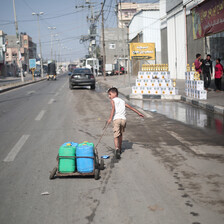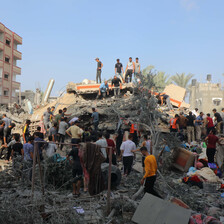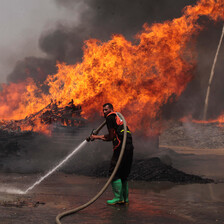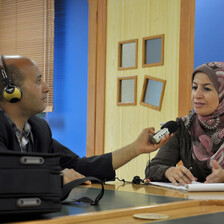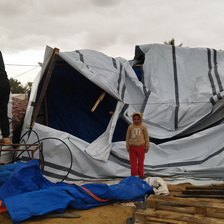The Electronic Intifada 11 October 2018
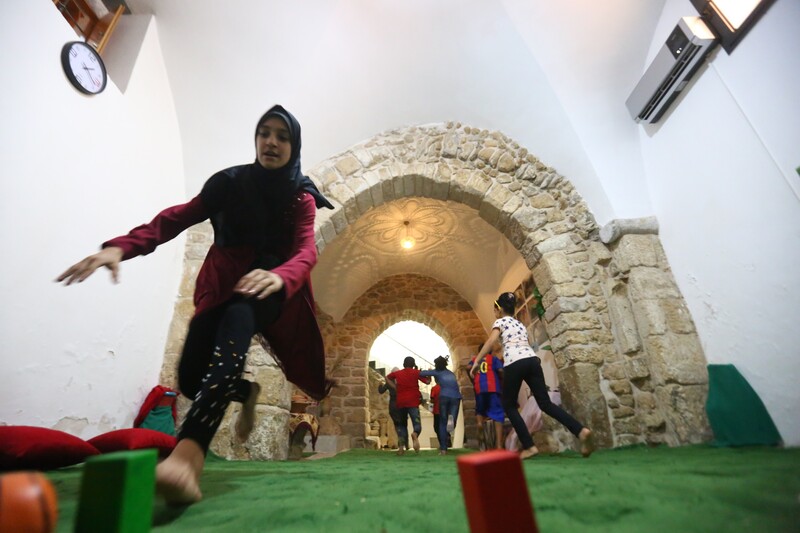
The restored monastery serves as a learning and recreational resource for Gaza’s children.
A site of immense value to global heritage can be found in central Gaza.
With parts of it reported to be 1,700 years old, it hosted both a mosque and a monastery. Featuring three domes and ancient Greek inscriptions, the site is named after Saint George.
Though best known as England’s patron saint, George is widely believed to have been born and raised in Palestine.
In more recent times, Saint George’s Monastery – as the 200-square-meter complex is called – started falling into disrepair.
Nawa, a cultural group in Deir al-Balah, the city where the monastery is located, resolved to preserve the site and ensure it is of benefit to the local community.
In 2014, Nawa assumed responsibility for a project aimed at developing a children’s library on the site. The project was undertaken in cooperation with the United Nations cultural body UNESCO, which has restored the monastery.
The project has proven fruitful. Since 2017, the library has been open to the public, running a number of educational programs.
“Dire need”
“This area is an impoverished one,” said Reem Abu Jaber, the director of Nawa. “Children here are in dire need of cultural, artistic and recreational services.”
The decision to focus on the printed word was deliberate. Abu Jaber argues that access to information is essential in the situation facing Gaza today, where children have been traumatized by repeated Israeli attacks and where an economic blockade has restricted contact with the wider world.
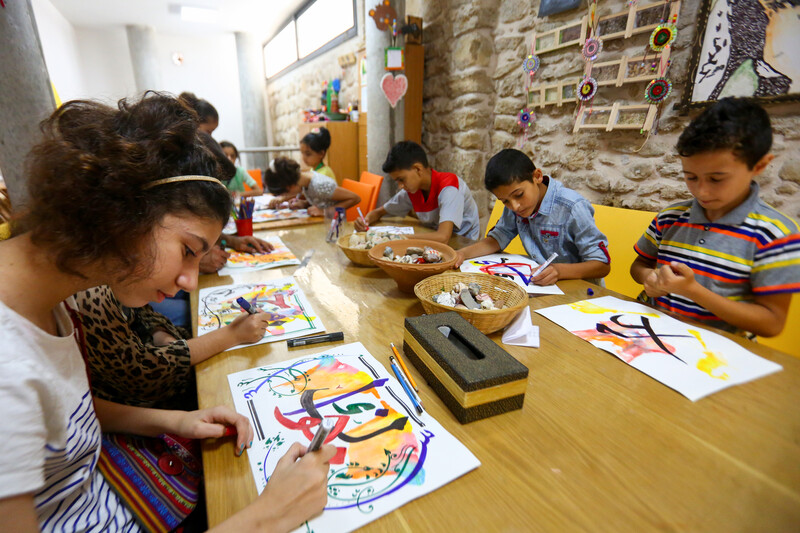
Calligraphy classes are held in the Deir al-Balah library.
In June, the organization Save the Children published the findings of a survey involving 150 children and their caregivers in Gaza. It found that 95 percent of children in the sample have such symptoms as depression, hyperactivity, a preference for being alone or a tendency towards aggressive behavior.
“I am afraid that those children will grow up without having books in their memories,” said Abu Jaber. “I am afraid they will not have credible and neutral sources of information to depend on when making decisions.”
Between 150 and 180 children visit the library each day.
A number of activities have been organized to give local people a sense that they own the project.
For example, children were asked to write names of their loved ones so that they could be glued to the walls of a nearby alley.
As well as being able to borrow books, the children can attend storytelling sessions. Usually held in the underground chapel belonging to the monastery, the sessions focus on traditional Palestinian tales.
“These stories are our roots and a strong proof of our rights to this land,” said Abu Jaber.
“Second home”
The sessions have been designed in such a way to assist children suffering from trauma.
They tend to start with soothing music and relaxation exercises. During them, children take deep breaths and then exhale. They are encouraged to let go of negative feelings.
Plants are often brought into the activities, too, so that children can savor the aroma of herbs such as mint.
Muhammad, 11, has been coming to the library for the past year. “I feel that it is like my second home,” he said. “I would like to stay all day at the library.”
This past summer, the library ran courses on calligraphy and creative writing, as well as a club where participants can discuss a book they have read. Literacy classes for parents have been held, too.
Despite its focus on Palestinian literature, the library also has a collection of books by Western authors.
Shahed, 12, has become a fan of Agatha Christie, the Englishwoman who wrote detective novels and murder mysteries.
“The library has opened my daughter’s eyes in so many ways,” said Shahed’s mother. “She has started sharing her thoughts and opinions on everything we talk about in our house.”
Many people in Deir al-Balah have expressed delight about the library and how children have engaged with its activities.
Amany Al-Najjar, 32, lives near the monastery and works in it as a storyteller.
“I never imagined that the place would turn into a library,” she said. “I always wished to have a library in my neighborhood.”
Ghada Al-Haddad is a journalist based in Gaza.
